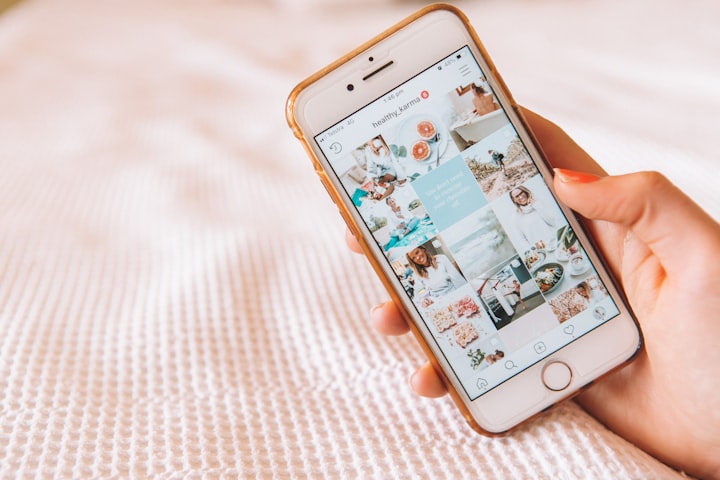What is next for Digital Creators? The future of Social Media
SOCIAL MEDIA

The digital landscape is constantly evolving, and the rise of social media has transformed the way we interact with content and each other.
As digital creators, it's important to stay ahead of the curve and anticipate what's next for social media. To gain insight into the future of social media, we've consulted with experts in the field to get their opinions on the direction social media is headed.
The Growth of Niche Platforms
While Facebook and Instagram remain the dominant players in social media, experts predict the rise of niche platforms. These platforms will cater to specific interests and communities, allowing creators to reach a more targeted audience. TikTok has already demonstrated the potential of a niche platform, with its short-form video content appealing to younger audiences. In the future, we may see more platforms like TikTok emerge, each with their own unique offering.
The Power of Personalization
As social media becomes more crowded, personalization will become a key factor in maintaining engagement. Users want to see content that is relevant to them, and platforms that can deliver personalized content will be more successful. AI and machine learning will play a big role in this, with algorithms learning from user behavior to deliver tailored content. Creators who can understand and leverage personalization will be well positioned to succeed on social media.
The Importance of Authenticity
As social media continues to mature, users are becoming more discerning when it comes to content. They want to see content that is genuine and authentic, rather than heavily curated or staged. Creators who can create authentic content that resonates with their audience will be the ones who thrive on social media. Influencers who prioritize authenticity will continue to gain traction, as followers seek out relatable content.
The Rise of Interactive Content
Interactive content is becoming increasingly popular on social media, with features like polls, quizzes, and AR filters gaining traction. This type of content encourages engagement and can help creators build stronger relationships with their audience. In the future, we may see even more interactive features on social media, with platforms offering more opportunities for creators to engage with their followers.
The Evolution of Social Commerce
Social media has already transformed the way we shop, with platforms like Instagram and Facebook offering in-app shopping features. In the future, experts predict that social commerce will continue to grow, with more platforms offering seamless shopping experiences. Creators who can tap into the power of social commerce will be able to monetize their content and generate revenue directly from their social media channels.
Digital Creator vs. Influencer: Understanding the Differences
In recent years, the terms "digital creator" and "influencer" have become increasingly popular. While they are often used interchangeably, they actually refer to different types of content creators.
We will explore the differences between digital creators and influencers, and what it means for brands and marketers.
What is a Digital Creator?
A digital creator is someone who produces original content across a variety of digital platforms, including social media, blogs, and websites. They may create content in various forms, such as video, photography, or written articles. Digital creators often have a specific niche or area of expertise that they focus on, such as fashion, food, or travel. They prioritize creativity and originality in their content, and may collaborate with brands or other creators on sponsored content.
What is an Influencer?
An influencer is someone who has built a large following on social media and has the ability to influence their audience's opinions and behaviors. They may have a specific niche, but their focus is on building a strong personal brand and cultivating a loyal following. Influencers often collaborate with brands on sponsored content, using their platform to promote products or services to their followers.
The Differences between Digital Creators and Influencers
While digital creators and influencers may share some similarities, there are several key differences between the two.
Digital creators focus on producing original content that showcases their creativity and expertise. Influencers, on the other hand, focus on building a personal brand and cultivating a loyal following.
Relationship with Followers
Digital creators often have a more personal relationship with their followers, as they prioritize building a community around their content. Influencers may have a larger following, but their relationship with their audience is often more one-sided, with followers looking to them for inspiration or entertainment.
Monetization
Digital creators may monetize their content through collaborations with brands, but they also often generate revenue through other means, such as selling products or services. Influencers, on the other hand, rely heavily on sponsored content for their income.
Creative Freedom
Digital creators prioritize creative freedom and may turn down collaborations that don't align with their values or aesthetic. Influencers may be more willing to collaborate on sponsored content, even if it doesn't align perfectly with their personal brand.
What it Means for Brands and Marketers
Understanding the differences between digital creators and influencers is important for brands and marketers looking to collaborate with content creators. Digital creators may offer a more niche audience and a more personal relationship with their followers, making them a good fit for brands looking for targeted marketing. Influencers may have a larger following and a more recognizable personal brand, making them a good fit for brands looking for wider reach and brand awareness.
While digital creators and influencers are often used interchangeably, they actually refer to two different types of content creators. Digital creators prioritize original content and building a community around their niche, while influencers prioritize building a personal brand and cultivating a loyal following. Understanding these differences is important for brands and marketers looking to collaborate with content creators and build successful partnerships.
The future of social media is exciting, with new platforms and features constantly emerging. As digital creators, it's important to stay ahead of the curve and anticipate what's next.
By embracing niche platforms, leveraging personalization, prioritizing authenticity, creating interactive content, and tapping into social commerce, creators can position themselves for success on social media.
About the Creator
Sarah Ahmad
I am a versatile professional with skills in content creation, digital marketing, and teaching. I am experienced in writing articles, creating videos and graphics, and managing social media platforms.






Comments
There are no comments for this story
Be the first to respond and start the conversation.